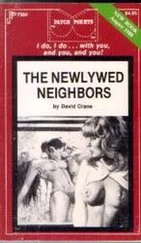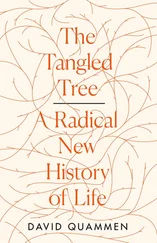David Ritchie - The New Warden
Здесь есть возможность читать онлайн «David Ritchie - The New Warden» — ознакомительный отрывок электронной книги совершенно бесплатно, а после прочтения отрывка купить полную версию. В некоторых случаях можно слушать аудио, скачать через торрент в формате fb2 и присутствует краткое содержание. Жанр: foreign_prose, на английском языке. Описание произведения, (предисловие) а так же отзывы посетителей доступны на портале библиотеки ЛибКат.
- Название:The New Warden
- Автор:
- Жанр:
- Год:неизвестен
- ISBN:нет данных
- Рейтинг книги:5 / 5. Голосов: 1
-
Избранное:Добавить в избранное
- Отзывы:
-
Ваша оценка:
- 100
- 1
- 2
- 3
- 4
- 5
The New Warden: краткое содержание, описание и аннотация
Предлагаем к чтению аннотацию, описание, краткое содержание или предисловие (зависит от того, что написал сам автор книги «The New Warden»). Если вы не нашли необходимую информацию о книге — напишите в комментариях, мы постараемся отыскать её.
The New Warden — читать онлайн ознакомительный отрывок
Ниже представлен текст книги, разбитый по страницам. Система сохранения места последней прочитанной страницы, позволяет с удобством читать онлайн бесплатно книгу «The New Warden», без необходимости каждый раз заново искать на чём Вы остановились. Поставьте закладку, и сможете в любой момент перейти на страницу, на которой закончили чтение.
Интервал:
Закладка:
There was something in the way Louise entered and stood at the door that made Lady Dashwood turn round and look at her. That excellent Frenchwoman was standing very stiffly, her eyes wide and agitated, and her features expressive of extreme excitement. She breathed loudly.
"What's the matter?" demanded Lady Dashwood.
"Madame Dashwood was not visible in the drawing-room!" said Louise, and she tightened her lips after this pronouncement.
"She had gone up to her bedroom?"
"Madame Dashwood is not in her bedroom!" said Louise, with ever deepening tragedy in her voice.
"Did you look for her in the library?" demanded Lady Dashwood.
"Madame Dashwood is not in the library!" said Louise. She did not move from her position in front of the door. She stood there looking the personification of domestic disaster, her chest heaving.
"Mrs. Dashwood isn't ill?" Lady Dashwood felt a sudden pang of fear at her heart.
"No, Madame!" said Louise.
"Then what is the matter?" demanded Lady Dashwood, sternly. "Don't be a fool, Louise. Say what has happened!"
"How can I tell Madame? It is indeed unbelievably too sad! I did not see Madame Dashwood but I heard her voice," began Louise. "Oh, Madame, that I should have to pronounce such words to you! I open the door of the drawing-room! It is scarcely at all lighted! No one is visible! I stand and for a moment I look around me! I hear sounds! I listen again! I hear the voice of Madame Dashwood! Ah! what surprise! Where is she? She is hidden behind the great curtains of the window, completely hidden! Why? And to whom does she speak? Ah, Madame, what frightful surprise, what shock to hear reply the voice, also behind the curtain, of Monsieur the Warden! I cannot believe it, it is incredible, but also it is true! I stop no longer, for shame! I fly, I meet Robinson in the gallery, but I pass him – like lightning – I speak not! No word escapes from my mouth! I come direct to Madame's room! In entering, I know not what to say, I say nothing! I dare not! I stand with the throat swelling, the heart oppressed, but with the lips closed! I speak only because Madame insists, she commands me to speak, to say all! I trust in God! I obey Madame's command! I speak! I disclose frankly the painful truth! I impart the boring information!"
While Louise was speaking Lady Dashwood's face had first expressed astonishment, and then it relaxed into amusement, and when her maid stopped speaking for want of breath, she sank down upon a chair and burst into laughter.
"My poor Louise?" she said. "You never will understand English people. If Mrs. Dashwood and the Warden are behind the window curtains, it is because they want to look out of the window!"
Louise's face became passionately sceptical.
"In the rain, Madame!" she remarked. "In a darkness of the tomb?"
"Yes, in the rain and darkness," said Lady Dashwood. "You must go down again in a moment, and give them my message!"
CHAPTER VII
MEN MARCHING PAST
After the Warden had closed the door on his sister he came back to the fireplace. He had been interrupted, and he stood silently with his hand on the back of the chair, just as he had stood before. He was waiting, perhaps, for an invitation to speak; for some sign from Mrs. Dashwood that now that they were alone together, she expected him to talk on, freely.
She had no suspicion of the real reason why her Aunt Lena had gone away. May took for granted that she had fled at the first sign of a religious discussion. May knew that General Sir John Dashwood, like many well regulated persons, was under the impression that he had, at some proper moment in his juvenile existence now forgotten, at his mother's knee or in his ancestral cradle, once and for all weighed, considered and accepted the sacred truths containing the Christian religion, and that therefore there was no need to poke about among them and distrust them. Lady Dashwood had encouraged that sentiment of silent loyalty: it left more time and energy over for the discussion and arrangement of the practical affairs of life. May knew all this.
May, sitting by the fire, with her eyes on her work, observed the hesitation in the Warden's mind. She knew that he was waiting. She glanced up.
"What was it you were saying?" she asked in the softest of voices, for now that they were alone there was no one to be annoyed by a religious discussion.
The Warden moved round and seated himself. But even then he could not bring his thoughts to the surface: they lay in the back of his mind urgent, yet reluctant. Meanwhile he began talking about the portrait again. It served as a stalking horse. He told her some of the old college stories, stories not only of Langley, but of other Wardens in the tempestuous days of the Reformation and of the Civil War.
"And yet," he said suddenly, "what were those days compared with these? Has there been any tragedy like this?" He gazed at her now; with his narrow eyes strained and sad.
"Just at the beginning of the war," he said, "I heard – It was one hot brilliant morning in that early September. It was only a passing sound – but I shall never forget it, till I die."
May Dashwood's hands dropped to her lap, and she sat listening with her eyes lowered.
"There was a sound of the feet of men marching past, though I could not see them. Their feet were trampling the ground rhythmically, and all to the 'playing' of a bugler. I have never heard, before or since, a bugle played like that! The youth – I could picture him in my mind – blew from his bugle strangely ardent, compelling notes. It was simple, monotonous music, but there came from the bugler's own soul a magnificent courage and buoyancy; and the trampling feet responded – responded to the light springing notes, the high ardour and gay fearlessness of youth. There was such hope, such joy in the call of duty! No thought of danger, no thought of suffering! All hearts leapt to the sounds! And the bugler passed and the trampling feet! I could hear the swift, high, passionate notes die in the distance; and I knew that the flower of our youth was marching to its doom."
The Warden got up from his chair, and walked away, and there was silence in the room.
Then he came up to where May sat and looked down at her.
"The High Gods," she said, quietly quoting his own phrase, "wanted them."
He moved away again. "I have no argument for my faith," he said. "The question for us is no longer 'I must believe,' but 'Dare I believe?' The old days of certainty have gone. Inquisitions, Solemn Leagues and Covenants have gone – never to return. All the clamour of men who claim 'to know' has died down."
And as he gazed at her with eyes that demanded an answer she said simply: "I am content with the silence of God."
He made no answer and leaned heavily on the back of his chair. A moment later he began to walk again. "I don't think I can believe that the heroic sacrifice of youth, their bitter suffering, will be mixed up indistinguishably with the cunning meanness of pleasure-seekers, with the sordid humbug of money-makers – in one vast forgotten grave. No, I can't believe that – because the world we know is a rational world."
May glanced round at him as he moved about. The great dimly-lit room was full of shadows, and Middleton's face was dark, full of shadows too, shadows of mental suffering. She looked back at her work and sighed.
"Even if we straighten the crooked ways of life, so that there are no more starving children, no men and women broken with the struggle of life: even if we are able, by self-restraint, by greater scientific knowledge to rid the earth of those diseases that mean martyrdom to its victims; even if hate is turned to love, and vice and moral misery are banished: even if the Kingdom of Heaven does come upon this earth – even then! That will not be a Kingdom of Heaven that is Eternal! This Earth will, in time, die. This Earth will die, that we know; and with it must vanish for ever even the memory of a million years of human effort. Shall we be content with that? I fail to conceive it as rational, and therefore I cling to the hope of some sort of life beyond the grave – Eternal Life. But," and here he spoke out emphatically, "I have no argument for my belief."
Читать дальшеИнтервал:
Закладка:
Похожие книги на «The New Warden»
Представляем Вашему вниманию похожие книги на «The New Warden» списком для выбора. Мы отобрали схожую по названию и смыслу литературу в надежде предоставить читателям больше вариантов отыскать новые, интересные, ещё непрочитанные произведения.
Обсуждение, отзывы о книге «The New Warden» и просто собственные мнения читателей. Оставьте ваши комментарии, напишите, что Вы думаете о произведении, его смысле или главных героях. Укажите что конкретно понравилось, а что нет, и почему Вы так считаете.












